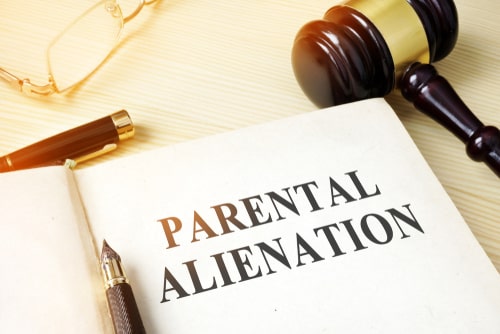Recent Blog Posts
Can a Stepparent Adopt a Stepchild in Illinois?
 In today's modern world, blended families are more common than ever, and many stepparents have taken a key role in their stepchildren's lives. However, a stepparent does not have the same legal rights in relation to a stepchild that a biological parent does. In Illinois, though, there is a legal process of adoption by which a stepparent may gain those rights.
In today's modern world, blended families are more common than ever, and many stepparents have taken a key role in their stepchildren's lives. However, a stepparent does not have the same legal rights in relation to a stepchild that a biological parent does. In Illinois, though, there is a legal process of adoption by which a stepparent may gain those rights.
Stepparent Adoption Process in Illinois
Many stepparents love their stepchildren as if the child is their own, and they want to adopt the child to become the child's official, legal parent.
The criteria for obtaining legal stepparent adoption in Illinois include:
-
The stepparent is legally married to the child's biological parent;
-
The child consents to the adoption, if the child is at least 14 years old; and,
How Can Parenting Time Be Divided in an Illinois Divorce?
 Going through a divorce can be very difficult, regardless of the situation. When children are involved, however, things can become much more complicated, and disagreements between parents can be emotionally charged and difficult to resolve. Many of the most significant concerns for divorcing parents will be related to child custody, including determining how parenting time will be divided. Depending on a family's circumstances, the needs of the children, and other factors, there are a wide variety of different arrangements for sharing physical custody of children. By understanding the options that are available, parents can take steps to make sure they will be able to maintain close, continuing relationships with their children going forward.
Going through a divorce can be very difficult, regardless of the situation. When children are involved, however, things can become much more complicated, and disagreements between parents can be emotionally charged and difficult to resolve. Many of the most significant concerns for divorcing parents will be related to child custody, including determining how parenting time will be divided. Depending on a family's circumstances, the needs of the children, and other factors, there are a wide variety of different arrangements for sharing physical custody of children. By understanding the options that are available, parents can take steps to make sure they will be able to maintain close, continuing relationships with their children going forward.
Options for Dividing Parenting Time
Parenting time, which is sometimes referred to as physical custody or visitation, refers to any time that children are in the care of either of their parents. These may include days that they stay overnight at a parent's home, or any shorter periods of time that they spend time with parents, such as evenings spent with one parent on school days.
Can a Spouse Use a Business to Hide Assets During the Divorce Process?
 During a divorce, issues related to the division of marital property can often be some of the most important concerns to address. All of the money and property owned by a couple must be divided in a manner that is fair to both parties. However, there are some situations where the ability to divide assets equitably may be difficult due to actions taken by one spouse. To avoid dividing certain assets, spouses may sometimes attempt to hide money or property. This can be a significant concern in cases where a couple owns a family business that is primarily managed by one spouse. To ensure that marital property can be divided fairly, it is important to be aware of the methods that could be used to hide marital assets through a business.
During a divorce, issues related to the division of marital property can often be some of the most important concerns to address. All of the money and property owned by a couple must be divided in a manner that is fair to both parties. However, there are some situations where the ability to divide assets equitably may be difficult due to actions taken by one spouse. To avoid dividing certain assets, spouses may sometimes attempt to hide money or property. This can be a significant concern in cases where a couple owns a family business that is primarily managed by one spouse. To ensure that marital property can be divided fairly, it is important to be aware of the methods that could be used to hide marital assets through a business.
Ways Business Owners May Conceal Money or Property
Issues related to a family business can complicate the property division process. In many cases, a spouse who is a business owner will want to make sure they will be able to continue owning the business after the couple's marriage is dissolved. This will require them to buy out the other spouse's share of the business, which is usually done by distributing other marital assets of an equivalent value to their spouse. However, the business owner may attempt to improperly benefit themselves and retain a larger portion of marital assets by taking actions such as:
How Can I Protect Myself During Divorce as a Stay-at-Home Parent?
 Ending a marriage can be challenging for anyone, but the divorce process can be particularly tough for stay-at-home parents. If you have been out of the workforce for some time, you may be unsure about your financial stability, and whether you will have enough money to cover your ongoing expenses. If your spouse has been the one to handle your family's finances, you may be uncertain about the amount of income that is coming in or the extent of the assets you own. You may also be concerned about whether you will be able to continue staying at home to care for your children, or whether you will need to find a job. Fortunately, there are steps you can take to protect your rights and safeguard yourself and your children.
Ending a marriage can be challenging for anyone, but the divorce process can be particularly tough for stay-at-home parents. If you have been out of the workforce for some time, you may be unsure about your financial stability, and whether you will have enough money to cover your ongoing expenses. If your spouse has been the one to handle your family's finances, you may be uncertain about the amount of income that is coming in or the extent of the assets you own. You may also be concerned about whether you will be able to continue staying at home to care for your children, or whether you will need to find a job. Fortunately, there are steps you can take to protect your rights and safeguard yourself and your children.
1. Gather Financial Documentation
During your divorce, it is essential to have an understanding of your family's finances. You will want to determine how much income is being earned from all sources, and you will also need to understand the assets you and your spouse own, and the debts you owe. As you prepare for your divorce, you can obtain relevant financial documents and information, including bank statements, tax returns, investment statements, credit card bills, and documentation related to assets such as your home and vehicles. This information can be crucial when addressing issues related to property division and financial support. Make sure to keep documents in a safe and secure place where they will not be lost or destroyed.
When Is a QDRO Used in an Illinois Divorce?
 Getting a divorce can be a tough process, including emotionally and financially. Even after the divorce is finalized, sometimes certain financial issues can linger for years if they were not addressed properly during the divorce process. One aspect of the financial side of a divorce which spouses in Illinois should be aware of is called a QDRO, which many times is used to divide retirement benefits. By understanding when a QDRO may be used and how it can affect your financial future, you can make sure you are taking the correct steps to protect your interests, and avoid potential complications down the line.
Getting a divorce can be a tough process, including emotionally and financially. Even after the divorce is finalized, sometimes certain financial issues can linger for years if they were not addressed properly during the divorce process. One aspect of the financial side of a divorce which spouses in Illinois should be aware of is called a QDRO, which many times is used to divide retirement benefits. By understanding when a QDRO may be used and how it can affect your financial future, you can make sure you are taking the correct steps to protect your interests, and avoid potential complications down the line.
What Is a QDRO?
A QDRO, or Qualified Domestic Relations Order, is a court order that allows for the division of certain types of marital property. These types of orders will typically be used when dividing retirement benefits, including certain types of retirement savings accounts and pension benefits which a person is eligible to receive after their retirement. Without a QDRO, a division of retirement benefits might result in unnecessary taxes, penalties, or other complications.
How to Deal With “Parental Alienation” in Divorce and Child Custody Cases
 When parents get a divorce, it can sometimes be difficult for them to remember that their children’s best interests should be their top priority. Parents can become focused on their own desires, and they may even attempt to use their children against each other. In some cases, one parent may attempt to manipulate their children into taking their side in disputes, or even cutting off contact with the other parent. This is known as “parental alienation”, and it can have damaging psychological effects on a child. If you believe that your ex is engaging in “parental alienation”, you will want to make sure you address this issue appropriately during legal proceedings related to child custody.
When parents get a divorce, it can sometimes be difficult for them to remember that their children’s best interests should be their top priority. Parents can become focused on their own desires, and they may even attempt to use their children against each other. In some cases, one parent may attempt to manipulate their children into taking their side in disputes, or even cutting off contact with the other parent. This is known as “parental alienation”, and it can have damaging psychological effects on a child. If you believe that your ex is engaging in “parental alienation”, you will want to make sure you address this issue appropriately during legal proceedings related to child custody.
Understanding “Parental Alienation”
“Parental alienation” is defined as attempts by one parent to cause their children to feel negatively about the other parent, or other forms of interference in their parent/child relationship. This may involve a variety of different actions, including speaking negatively about the other parent in the children's presence, asking children to monitor the other parent's activities or relationships, encouraging children to take sides in disputes, claiming that the other parent does not love the children or want to spend time with them, or refusing to allow the children to see or communicate with the other parent. This kind of behavior can be very harmful, because it creates an environment where the child feels that they must choose between their parents. The result is often increased stress for all parties involved, and long-lasting emotional damage for the child.
What Happens if My Spouse Refuses to Sign Divorce Papers in Illinois?
 If you have decided to get a divorce, the process will go more smoothly if you and your spouse can both agree on the terms of the divorce and sign the necessary paperwork. However, there may be situations in which your spouse refuses to sign divorce papers, or participate in the divorce process. There could be a number of reasons for this refusal, such as:
If you have decided to get a divorce, the process will go more smoothly if you and your spouse can both agree on the terms of the divorce and sign the necessary paperwork. However, there may be situations in which your spouse refuses to sign divorce papers, or participate in the divorce process. There could be a number of reasons for this refusal, such as:
-
They are hoping you will change your mind about getting a divorce;
-
They want to delay the process and cause more difficulty for you;
-
They are trying to get revenge because they blame you for breaking up your family;
-
They have legitimate concerns about the divorce agreement.
If your spouse is purposely delaying the process or refusing to cooperate, it is important to understand that there are still options available to you. By taking the correct steps, you can force your spouse to be involved in the divorce proceedings, and if they still refuse to cooperate, the court may rule in your favor on many issues. Once your divorce has been finalized, you can leave the relationship and move forward successfully.
Would I Have to Move Out of My Home During a Divorce?
 During a divorce, one can expect their life to change in many ways. As you end your legal relationship with your spouse, you will need to make adjustments to your spending to ensure that you will be able to cover all of your expenses, and your daily routines will most likely change as well. However, you will usually want to make these changes on your own terms, and you may be looking to ease into your new life gradually. This may be difficult if you will be required to find new living arrangements, and you may be concerned that you could be forced to move out of your home while you are still in the midst of the divorce process. By understanding the divorce laws in Illinois, and the ways Illinois courts handle these situations, you can protect yourself against the unexpected, and make plans for how matters will be handled as you dissolve your marriage.
During a divorce, one can expect their life to change in many ways. As you end your legal relationship with your spouse, you will need to make adjustments to your spending to ensure that you will be able to cover all of your expenses, and your daily routines will most likely change as well. However, you will usually want to make these changes on your own terms, and you may be looking to ease into your new life gradually. This may be difficult if you will be required to find new living arrangements, and you may be concerned that you could be forced to move out of your home while you are still in the midst of the divorce process. By understanding the divorce laws in Illinois, and the ways Illinois courts handle these situations, you can protect yourself against the unexpected, and make plans for how matters will be handled as you dissolve your marriage.
Equitable Distribution Laws
Illinois law states that marital property should be divided equitably, but not necessarily equally, between you and your spouse during your divorce, and this could include your home and other assets of significant value. As you negotiate a property division settlement with your spouse, you can address who will retain ownership of the home post-divorce. Depending on the overall circumstances, the financial resources available to each party, and each party’s ongoing needs, either spouse may be awarded sole ownership of the home, while the other party may receive other assets that have a similar value to the equity in your home. Alternatively, the parties may decide to sell the home during the divorce process, which will require both spouses to find new living arrangements. If the parties cannot reach an agreement on their own, then the judge in your case may decide who will own the home, or whether it should be sold.
Mistakes to Avoid When Enforcing an Illinois Family Court Order
 When a married couple gets divorced, as well as in other types of family law cases, court orders will be put in place that will detail how certain issues will be handled going forward. While parents are expected to follow the terms of these orders, situations may arise in which one parent may believe that the other has failed to meet their obligations. These disputes may be related to child custody, child support, or other issues. Understanding the best ways to address these issues is important, and parents who approach these matters the wrong way could face a number of additional legal concerns. If you are in this situation, here are some mistakes that you should be sure to avoid:
When a married couple gets divorced, as well as in other types of family law cases, court orders will be put in place that will detail how certain issues will be handled going forward. While parents are expected to follow the terms of these orders, situations may arise in which one parent may believe that the other has failed to meet their obligations. These disputes may be related to child custody, child support, or other issues. Understanding the best ways to address these issues is important, and parents who approach these matters the wrong way could face a number of additional legal concerns. If you are in this situation, here are some mistakes that you should be sure to avoid:
Withholding Child Support
In some cases, a parent may violate child custody orders; for example, they may fail to pick up or drop off children when required, or they may refuse to allow the other parent to communicate with the children. These actions can cause a great deal of difficulty, especially for a "non-custodial" parent who spends less time with their children than they would prefer. The inability to spend time with children or communicate with them about what is going on in their lives can have a significant impact on parent/child relationships, and a parent who is being denied parenting time may believe that they need to take action to compel the other parent to abide by a child custody order.
If My Spouse Does Not Work, Will I Have to Pay Alimony in Our Divorce?
 If you and your spouse have decided to split up and get a divorce, both of you will need to address numerous financial issues related to the ending of your marriage. Many of these issues have to do with the division of marital property, and determining how to fairly and equitably divide the assets you both own can often be a complicated process. However, it is also important to ensure that both of you will have the financial resources that will allow you to meet your needs going forward, and so issues related to the income that each of you earns may need to be addressed. If your spouse is not currently working, they may request that you provide them with ongoing support payments. By understanding the laws that affect alimony (also known as spousal maintenance, or spousal support), you can work to find solutions that will protect your financial interests.
If you and your spouse have decided to split up and get a divorce, both of you will need to address numerous financial issues related to the ending of your marriage. Many of these issues have to do with the division of marital property, and determining how to fairly and equitably divide the assets you both own can often be a complicated process. However, it is also important to ensure that both of you will have the financial resources that will allow you to meet your needs going forward, and so issues related to the income that each of you earns may need to be addressed. If your spouse is not currently working, they may request that you provide them with ongoing support payments. By understanding the laws that affect alimony (also known as spousal maintenance, or spousal support), you can work to find solutions that will protect your financial interests.

















